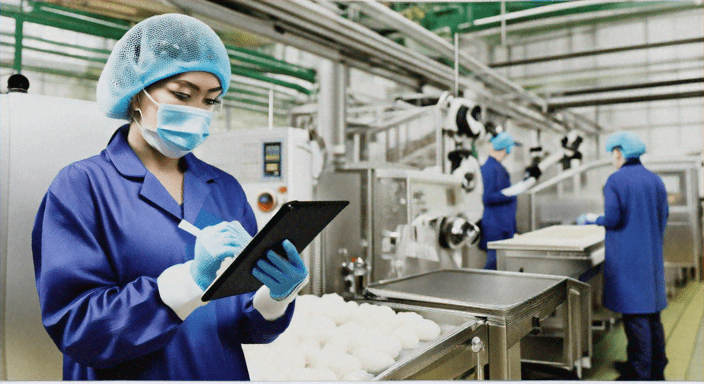Essential to economic progress, the food manufacturing industry provides numerous job opportunities and plays a pivotal role in the food supply chain. As the demand for processed foods rises, it opens up a wide array of career paths. This article explores the myriad job opportunities and the key drivers of industry growth within food manufacturing.
Job Opportunities in Food Manufacturing
Across various skill levels and specializations, the food manufacturing industry offers a broad spectrum of job opportunities. Below are some pivotal roles within the sector:
1. Production and Operations

-
Machine Operators: Tasked with the operation and upkeep of machinery used in food processing and packaging.
-
Production Supervisors: Manage production lines, ensuring seamless and efficient operations.
-
Quality Control Inspectors: Scrutinize product quality to ensure adherence to safety and regulatory standards.
2. Research and Development (R&D)
-
Food Scientists and Technologists: Innovate new food products, enhance existing ones, and guarantee they comply with safety and quality benchmarks.
-
R&D Managers: Head teams of scientists and technologists in pioneering innovative products and processes.
3. Engineering and Maintenance
-
Maintenance Technicians: Conduct routine maintenance and repairs on equipment to uphold optimal functionality.
-
Process Engineers: Conceptualize and refine manufacturing processes to bolster efficiency and product quality.
4. Supply Chain and Logistics
-
Logistics Coordinators: Orchestrate the transportation and distribution of food products, guaranteeing timely delivery.
-
Supply Chain Managers: Supervise the entire supply chain, from procuring raw materials to delivering finished products.
5. Sales and Marketing
-
Sales Representatives: Promote and vend food products to retailers, wholesalers, and other clientele.
-
Marketing Managers: Craft and execute marketing strategies to amplify brand recognition and sales.
Skills and Qualifications
The requisite skills and qualifications for roles in food manufacturing hinge on the specific position. Nevertheless, some ubiquitous skills encompass:
-
Attention to Detail: Meticulous attention to detail is imperative for ensuring product quality and safety.
-
Technical Skills: Proficiency in machinery, equipment, and food processing technologies is often mandatory.
-
Problem-Solving Skills: The capability to swiftly and effectively troubleshoot and resolve issues is crucial.
-
Teamwork and Communication: Effective communication and collaboration are quintessential in a manufacturing milieu.
For specialized positions, such as food scientists or engineers, pertinent degrees and certifications are generally requisite. Ongoing education and training are also vital to remain abreast of industry trends and technological progressions.
Benefits of Working in Food Manufacturing
-
Job Stability: The incessant demand for food products assures a steadfast job market.
-
Career Growth: The industry proffers abundant opportunities for career progression and professional enhancement.
-
Diverse Opportunities: With an extensive array of roles available, individuals can pinpoint positions that align with their skills and proclivities.
-
Contribution to Society: Employment in food manufacturing enables individuals to partake in ensuring the availability and quality of food products for consumers.
Conclusion
The food manufacturing industry stands as a vibrant and burgeoning sector, proffering a cornucopia of job opportunities. Spanning from production and operations to research and development, engineering, and sales, there exists a role tailored for everyone. As consumer demand for convenient and quality food products persists in escalating, the industry will continue its expansion, rendering it an exemplary domain for job seekers. Whether you are embarking on your professional journey or contemplating a career shift, delving into opportunities within food manufacturing can culminate in a gratifying and stable career trajectory.





